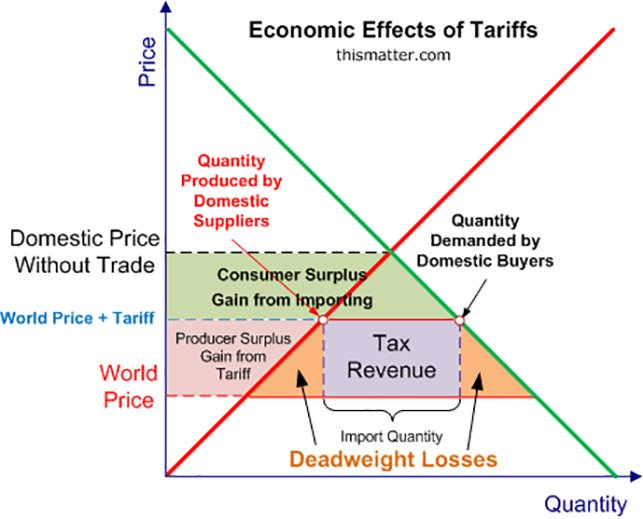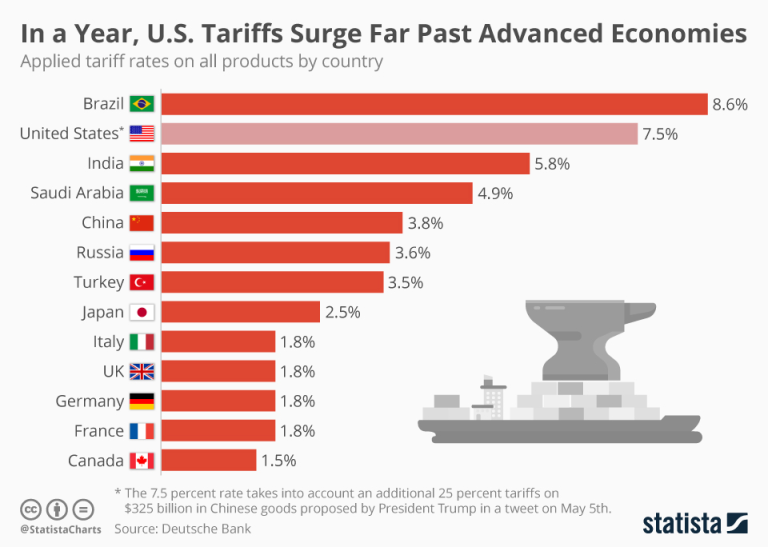
Stefanie Stantcheva stands out as a leading voice in contemporary economics, having recently earned the prestigious John Bates Clark Medal, awarded to under-40 economists for notable contributions to the field. A Harvard economist and the Nathaniel Ropes Professor of Political Economy, Stantcheva’s research delves into the intricacies of tax policy innovation and economic behavior. Her groundbreaking work, which includes the influential study “Taxation and Innovation in the 20th Century,” highlights the crucial link between taxation and innovation, revealing how tax policy can either foster or hinder economic growth. As the founder of the Social Economics Lab, she continues to explore pivotal issues like trade and social mobility. Stantcheva’s commitment to understanding the dynamics of the economy through the lens of public finance has solidified her status as a key figure in the field of economics.
In the realm of economic studies, Stefanie Stantcheva’s recent accolades underscore her exceptional contributions to fiscal discussions and policy analysis. Recognized with the esteemed John Bates Clark Medal, this award celebrates her innovative approach to understanding how taxation impacts not only economic activity but societal behavior as well. As a Harvard educator, she leads the Social Economics Lab, which applies empirical methods to explore pressing economic challenges, including immigration and climate change. Stantcheva’s work not only enhances our grasp of public finance but also emphasizes the role of economic incentives in shaping innovation. Her ongoing research is paving the way for new insights into the intersection of emotions and economic policy, demonstrating the multifaceted nature of social economics.
Stefanie Stantcheva: A Trailblazer in Economics
In the realm of economics, few have made waves quite like Stefanie Stantcheva. As the recipient of the prestigious John Bates Clark Medal, she has been recognized not just for her achievements but for her innovative approach to understanding tax policy and its wider implications on society. The medal, awarded annually to an economist under 40, highlights Stantcheva’s commitment to addressing complex issues in public finance and her ability to translate economic theories into practical insights that shape policy. Her work stands as a testament to the vital role economists play in crafting a sustainable economic future.
Stantcheva’s research goes beyond traditional tax studies; she delves into how economic incentives drive behavior, making her a leading voice at the intersection of economics and social policy. With a career highlighted by her tenure as the Nathaniel Ropes Professor of Political Economy at Harvard, her respect and recognition in the field mirror that of past award winners who paved the way in economics. As the founder of the Social Economics Lab, she has created a platform to address pressing issues such as climate change and immigration, showcasing her dedication to improving not only theoretical understanding but also practical solutions to real-world challenges.
The Impact of Tax Policy on Innovation
Stefanie Stantcheva’s significant contributions to the study of tax policy have uncovered vital linkages between taxation levels and innovation output. Her groundbreaking paper, “Taxation and Innovation in the 20th Century,” emphasizes how innovations respond dynamically to shifts in tax policy, showcasing a high elasticity that policymakers must consider. The findings indicate that while higher taxes generally deter the quantity of new inventions, they do not necessarily diminish the quality of innovative outputs, a nuanced understanding vital for shaping future tax frameworks.
These insights challenge conventional beliefs about taxation and reformulate the discourse around how economic structures can either propel or hinder innovation. For policymakers, Stantcheva’s research suggests that a carefully designed tax system can incentivize creativity and entrepreneurial spirit, ultimately fostering a more robust economy. As such, her work not only enriches academic literature but serves as a crucial guide for future tax policy innovations that aspire to simultaneously stimulate growth and fairness.
The Role of the Social Economics Lab in Understanding Economic Behavior
Founded by Stefanie Stantcheva in 2018, the Social Economics Lab serves as a beacon for advancing our understanding of economic behavior through innovative research. The lab focuses on how emotional perspectives, such as zero-sum thinking, influence public perceptions of economic policies, enriching the dialogue around public finance and wider economic issues. By addressing economic and social challenges through an interdisciplinary lens, Stantcheva aims to bridge the gap between abstract economic theories and the lived experiences of individuals.
Through various research initiatives and projects, the Social Economics Lab aims to unearth the complexities in how people think about economic policies. Stantcheva’s vision for the lab is to cultivate a comprehensive approach to economics that not only considers financial data but also the human element behind economic decisions. This approach is crucial as it ensures that policies designed to tackle pressing issues like immigration and climate change are informed by the actual concerns and motivations of society, leading to more sustainable outcomes.
Influence of Harvard’s Economics Department
The Harvard Department of Economics has long been a powerhouse of economic thought, nurturing some of the leading minds in the field. The recent recognition of Stefanie Stantcheva with the John Bates Clark Medal further cements the department’s legacy of excellence. With faculty members such as Lawrence Katz and Elie Tamer also being distinguished scholars, the collaboration and innovation within this environment bolster the impact of economic research globally. Celebrations surrounding Stantcheva’s achievement reflect the collective pride and expectation that the department continues to foster stellar contributions to economics.
Harvard’s Economics Department thrives on a tradition of mentorship and collaboration, where past winners of the Clark Medal often engage with and guide young scholars like Stantcheva. This environment of intellectual challenge encourages emerging economists to tackle essential questions in public finance, taxation, and social issues, aligned with the department’s mission to create a meaningful impact through research. As Stantcheva expands her groundbreaking work at the Social Economics Lab, her achievements accentuate the department’s commitment to addressing contemporary economic challenges with innovative strategies.
The John Bates Clark Medal: Significance and History
The John Bates Clark Medal is one of the most coveted awards an economist can receive, symbolizing excellence and innovation in the field. Established by the American Economic Association, the award recognizes economists under the age of 40 who have made significant contributions to the discipline. Winning this prestigious medal not only celebrates individual achievement but also brings attention to the vital work being done within economics to address pressing societal issues, making it a noteworthy honor for emerging scholars like Stefanie Stantcheva.
As the medal has a storied history of celebrating pioneering economists, it serves a dual purpose: honoring achievements while inspiring future generations. The award has previously honored figures who have fundamentally shifted economic paradigms, and Stantcheva’s receipt of the medal indicates her potential to influence future directions in public finance and tax policy. Her research reflects the values of the award by pushing boundaries and practically applying theoretical insights to improve public welfare and economic resilience.
Stefanie Stantcheva’s Vision for Future Economic Research
Looking ahead, Stefanie Stantcheva envisions broadening the scope of economic research to include the intricate relationships between economic policies and human behaviors. By focusing on areas such as emotions and public perceptions, she aims to shed light on how non-economic factors can significantly influence economic outcomes. This innovative approach holds promise for not only shaping policy but also enhancing public understanding of economics, ultimately striving for a more informed populace that can engage with economic discourse on multiple levels.
Stantcheva’s work reflects a commitment to making economic research accessible and relevant to everyday life. By continuing to question established norms and exploring new dimensions of public finance, tax policy, and social implications, she seeks to engage with the community in a meaningful way. As she advances her work at the Social Economics Lab, her contributions can inspire a new wave of economists dedicated to exploring the multidimensional aspects of economic challenges, thereby shaping a prosperous and equitable future.
Celebrating the Interdisciplinary Approach in Economics
Stantcheva’s interdisciplinary approach at the Social Economics Lab exemplifies the importance of integrating insights from various fields in understanding complex economic issues. By combining economics with psychology, sociology, and behavioral science, her research provides a comprehensive analysis of how taxes and policies are perceived and enacted within society. This multifaceted perspective is crucial in an increasingly complex world, where economic challenges often intertwine with social dynamics.
The ability to draw on diverse methodologies and theoretical frameworks enriches economic research, allowing for more robust conclusions and innovative solutions. Stantcheva’s work highlights how addressing subjects such as emotional responses to policy can enhance public engagement with economic systems. Celebrating this interdisciplinary approach not only fosters collaboration among scholars but also paves the way for dynamic discussions that can lead to groundbreaking advancements in economics.
The Future of Tax Policy Innovation
As economies evolve, so too must tax policies that support sustained growth and innovation. Stefanie Stantcheva’s research into tax policy demonstrates the necessity of designing systems that encourage rather than inhibit creative economic activities. With the insights drawn from her work on taxation and innovation, there is a clear directive for policymakers to consider how changes in the tax structure could invigorate sectors like technology and research.
Moving forward, tax policy innovation must be aligned with broader economic and social objectives. The implications of Stantcheva’s findings underscore the potential of tax reforms to catalyze innovation while maintaining fairness within the economy. The challenge lies in creating a responsive tax environment that promotes entrepreneurship, supports academic research, and enhances societal welfare, ensuring that tax policy evolves in harmony with changing economic landscapes.
Contributions of Early Career Economists to Public Finance
The recognition of young economists like Stefanie Stantcheva highlights the substantial contributions made by early career scholars in the field of public finance. Economists under 40 are increasingly being acknowledged for their innovative research and fresh perspectives on longstanding economic issues. This trend reflects a growing sense of urgency within the field to tackle today’s challenges, such as fiscal sustainability and social equity, with new approaches and methodologies.
Stantcheva’s work showcases how early-career economists are at the forefront of redefining our understanding of tax policy and its ramifications on society. By breaking down barriers and addressing complex questions, these economists pave the way for impactful research that resonates with policymakers and the public. As the next generation continues to emerge, the economics field stands to benefit immensely from their insights and pioneering efforts in shaping economically sound policies for future prosperity.
Frequently Asked Questions
Who is Stefanie Stantcheva and what is her contribution to economics?
Stefanie Stantcheva is a Harvard economist renowned for her pioneering work in tax policy innovation and public finance. She was awarded the prestigious John Bates Clark Medal in 2025, recognizing her significant contributions to the field of economics, particularly her insights on how tax policy impacts economic behavior and innovation.
What is the John Bates Clark Medal and why was Stefanie Stantcheva awarded it?
The John Bates Clark Medal is an esteemed award given to an under-40 economist for exceptional contributions to the field. Stefanie Stantcheva received this award in 2025 for her groundbreaking research on tax policy innovation, showing how tax systems can influence economic growth and innovation.
What is the Social Economics Lab founded by Stefanie Stantcheva?
The Social Economics Lab, founded by Stefanie Stantcheva in 2018, focuses on understanding the interplay of economic policies and social behavior. It conducts research on various issues including trade, immigration, and climate change, aiming to uncover how emotions and mindsets influence economic decision-making.
How does Stefanie Stantcheva’s research impact tax policy innovation?
Stefanie Stantcheva’s research has demonstrated that tax policies significantly affect innovation rates. Her 2022 paper revealed that while higher taxes can reduce the quantity of innovation, they do not necessarily diminish the quality of inventions, underscoring the complicated relationship between tax policy and economic activity.
What are some of the areas of focus in Stefanie Stantcheva’s recent work?
In her recent work, Stefanie Stantcheva has addressed critical issues such as trade, immigration, climate change, and social mobility. She aims to understand public perceptions of these economic issues, including the emotional responses to policies, through her work at the Social Economics Lab.
What does Stefanie Stantcheva believe about the role of the tax system in an economy?
Stefanie Stantcheva posits that the tax system plays a crucial role in an economy, having the potential to either foster innovation and economic activity or hinder it, depending on its design. She emphasizes the importance of well-structured tax policies to encourage positive economic outcomes.
What impact has Stefanie Stantcheva had on the field of public finance?
Stefanie Stantcheva has significantly advanced the field of public finance by exploring the effects of tax policy on innovation and economic behavior. Her research provides new insights that help policymakers understand how tax structures can drive or stifle economic development.
| Key Points | Details |
|---|---|
| Recipient of the John Bates Clark Medal | Stefanie Stantcheva was awarded the medal for her significant contributions in economics, particularly under the age of 40. |
| Pioneering Insights | Stantcheva is recognized for her research on tax policy, innovation, and economic behavior. |
| Impact of Tax Policy | Her study shows that innovation responds significantly to changes in tax policy, emphasizing the tax system’s role in promoting or discouraging economic activity. |
| Social Economics Lab | Founded by Stantcheva in 2018, focusing on economic issues including trade, immigration, and climate change. |
| Current Research Focus | Exploring the interplay between emotions and economic policies and examining mindsets like zero-sum thinking. |
Summary
Stefanie Stantcheva has made remarkable strides in the field of economics, earning her recognition as the recipient of the prestigious John Bates Clark Medal. Her pioneering research on tax policy and its influence on innovation underscores her vital contributions to public finance and economic behavior. Stantcheva’s work, celebrated in academic settings, illuminates how thoughtful tax designs can foster economic activity and innovation, shaping the future of economics. Furthermore, her initiatives at the Social Economics Lab are paving the way for understanding complex economic dilemmas in the modern world.



